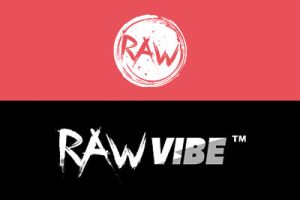
The Australian government seems ready to ban all gambling ads If you follow a scathing report compiled as part of a parliamentary inquiry into this matter, it will be circulated in the media.
The report presents more than 30 recommendations, and some of them focus on advertising and other ways to protect vulnerable people. A House of Representatives Committee on Social Policy and Legal Affairs has been digging deeply into the country’s gambling problems, particularly among online gambling participants. What makes the harsh assessment of the situation even more revealing is that the Australian government doesn’t even allow it online casinos and licensed gambling is mostly limited to sports and race betting.
Australians are losing more per capita from online gambling than gamblers in any other country while the government increased AU$1.6 billion in taxes in 2022. Participation in online gambling increased during the pandemic and remains above pre-pandemic levels.
General ban on all forms of gambling advertising
Proposals in the inquiry include a total ban on all gambling ads in the country, including those posted on social media or other online outlets serving Australian gamblers, as well as on all traditional media including newspaper, television, billboards or any other news delivery system. Small local radio stations would be exempt from the tax until 2025, with special racing stations remaining exempt.
The ban is to be implemented in four steps over the next three years.
recommendation 26
5.148
The Committee recommends that the Australian Government work with States and Territories introduce a total ban on all forms of online gambling advertisingwhich will be introduced immediately in four phases over a period of three years.
Prime Minister Anthony Albanese indicated that the government will take all recommendations into account.
Albanese said on ABC Gold Coast radio: “We have to deal with online issues, we have to deal with social media issues, we have to deal with them comprehensive in all areas.”
Committee Chair Peta Murphy said in the summary: “Australians spend more on online gambling than citizens of any other country. This is wreaking havoc in our communities. Saturation advertising secures our future losses. Only WSPs, major sports organizations and the media benefit from the status quo. This investigation found evidence of players who had lost and were encouraged to bet more by the WSPs; and those who won and were prevented from continuing to play. Any business model that encourages harm deserves close scrutiny.”
The question’s title was changed about a month after it was adopted by the committee in late 2022 and a request for comment was amended to read “People with lived experience of wildlife damage to participate”, indicating the direction it had been going almost from the start. The written comment period ended a month later.
The final working title is: ““You win some, you lose more” and the introduction to the research report is titled: “Research on online gambling and its impact on those who experience gambling harm.”
The report can be read in its entirety or downloaded in sections Here.
The committee was composed as follows:
Committee President and Members
chairman
Mrs Peta Murphy MP
Australian Labor Party, Dunkley VIC
Vice President
Mr Pat Conaghan, MP
The Nationals, Cowper NSW
Member
Mrs Kate Chaney MP
Independent, Curtin WA
Member
Mrs Mary Doyle MP
Australian Labor Party, Aston VIC
Member
Mr Sam Lim MP
Australian Labor Party, Tangney WA
Member
Mrs Louise Miller-Frost, Members of Parliament
Australian Labor Party, Boothby SA
Member
Hon Shayne Neumann MP
Australian Labor Party, Blair QLD
Member
Mrs. Jenny Ware MP
Australian Liberal Party, Hughes NSW
Member
Mr. Keith Wolahan MP
Australian Liberal Party, Menzies VIC
The research allowed “both sides” of the problem to be presented, providing contrasting viewpoints from researchers, consumer advocates and stakeholders, including those in the social gaming space, which some parties involved in the research defined as such “aimed at children”
While some researchers have suggested that there is a causal relationship between them board games and real money gambling problems or between advertising and gambling damage is “weak at best”Some strong arguments have been made for the “don’t” side of the equation, which have also been backed up by scientific research.
When trying to determine whether or not Make changes to the Interactive Gambling Act 2001, MEPs drew up a list of possible changes needed in social gaming, loot boxes and “gambling” that could look like better casino education for children by exposing them to responsible gaming measures applied to real money gambling in different jurisdictions. This includes the following:
- View the odds of winning for each prize
- Offer loot box content at a fixed and reasonable price so players don’t have to search for the items they want
- Correct loot box odds so that different players cannot be offered different odds based on their spending or play behavior
- Set prize pools
- List of prizes and prizes in real money
- Integrate an age verification system
- Allow players to track their spending
- Allow players to self-exclude themselves from games
Rejection in the total ban on gambling advertising
Responsible Wagering Australia (RWA) is the largest real money gambling operator in the country. In a statement, the trade body urged the government to take a more balanced approach than an outright ban. The ban recommendation was not accompanied by any corroborative rationale, according to the group’s CEO, Kai Cantwell, who explained in an industry response:
“RWA members, as well as broadcasters and major sports federations, have publicly acknowledged that there is a growing desire in the community to see fewer gambling ads.”
“However, general prohibitionsEven with a gradual introduction, they are short-sighted, ineffective and are not the answer.”
Cantwell continued: “We know that strict changes – like blanket bans and prohibitive incentives like bonus betting – are often ineffective in tackling gambling problems and Australians are turning to illegal offshore markets for these options.”
Would a federal regulation open the door to online casinos?
In Australia, gambling is regulated and licensed at the state level, not the federal level. While under the current law and system online casinos would be perfectly legal today if licensed in any state or territory, none have made it their mission to do so. However, There is no federal law This discourages residents from playing abroad – they are free to do so if they wish.
It is unclear whether the committee’s recommendation to change regulation and licensing at the federal level would encourage more commitment to online casino licensing and regulation, or make it even more difficult for potential operators, given all opponents of online casino gambling still with a small stake in the game would be a different power dynamic and all supporters would face the same opposition as at the state level and a unified voice if the national sentiment of politicians were against it. .
A sole federal ombudsman for online gambling damages?
The research suggests that there should be a single federal minister responsible for gambling harm reduction. It also proposes new taxes for existing operators to specifically fund gambling-related harm, a public education campaign to reduce gambling harm and a tougher crackdown on unlicensed offshore operators. If all recommendations were applied, a ban on deposit incentives or incentives such as bonuses would come into effect.
Spring: Australia is considering an advertising ban on gambling, iGaming Business reportsJune 28, 2023













